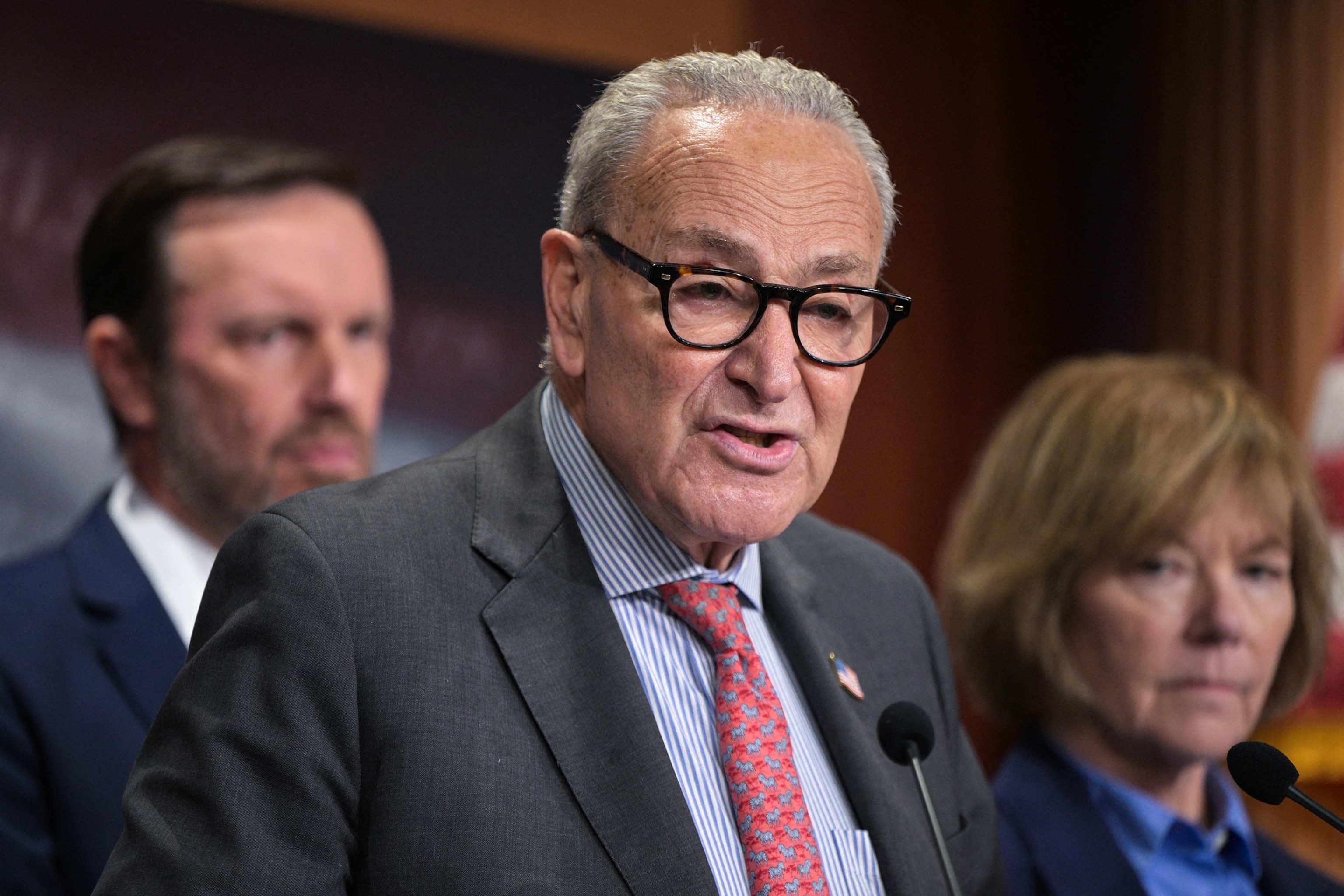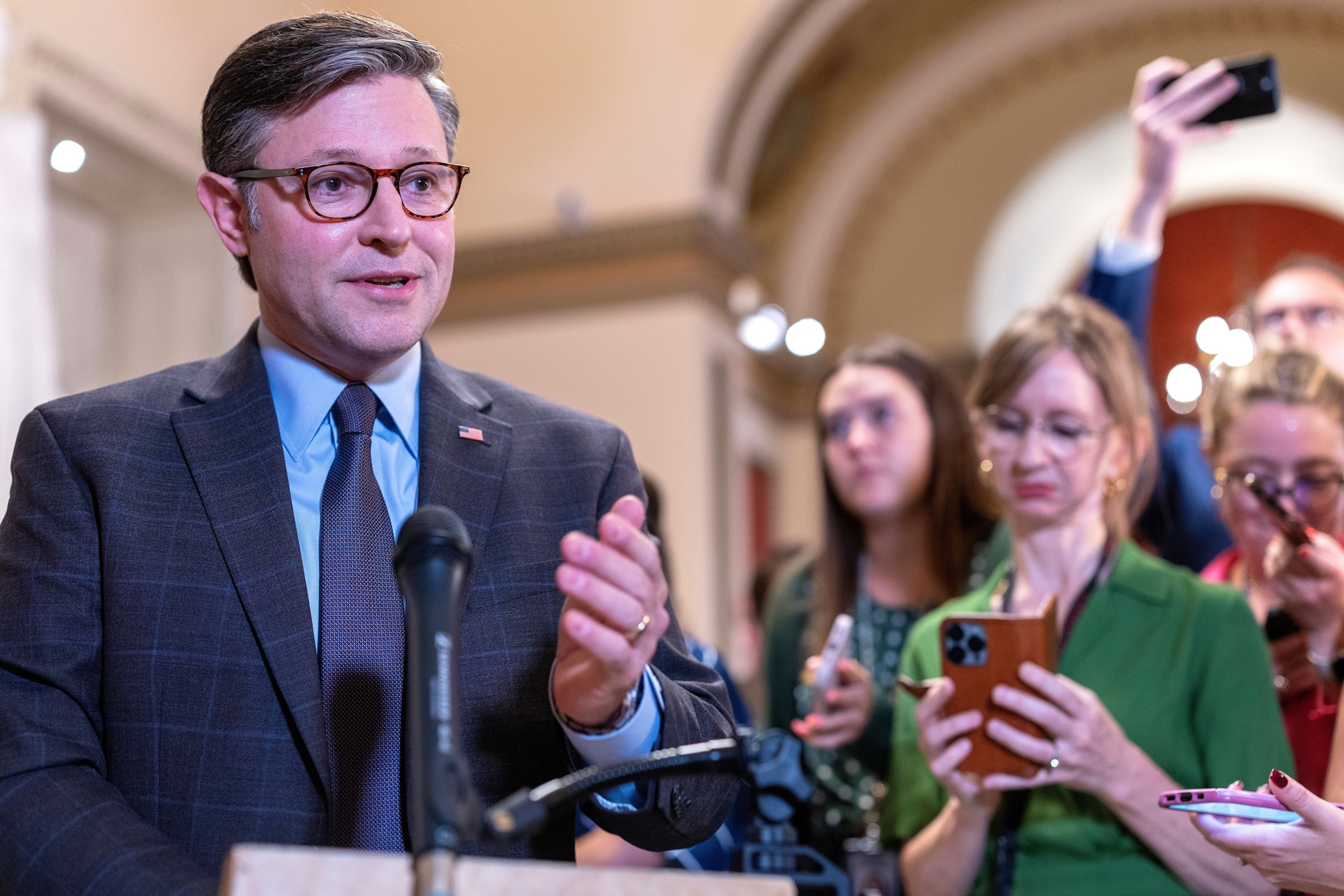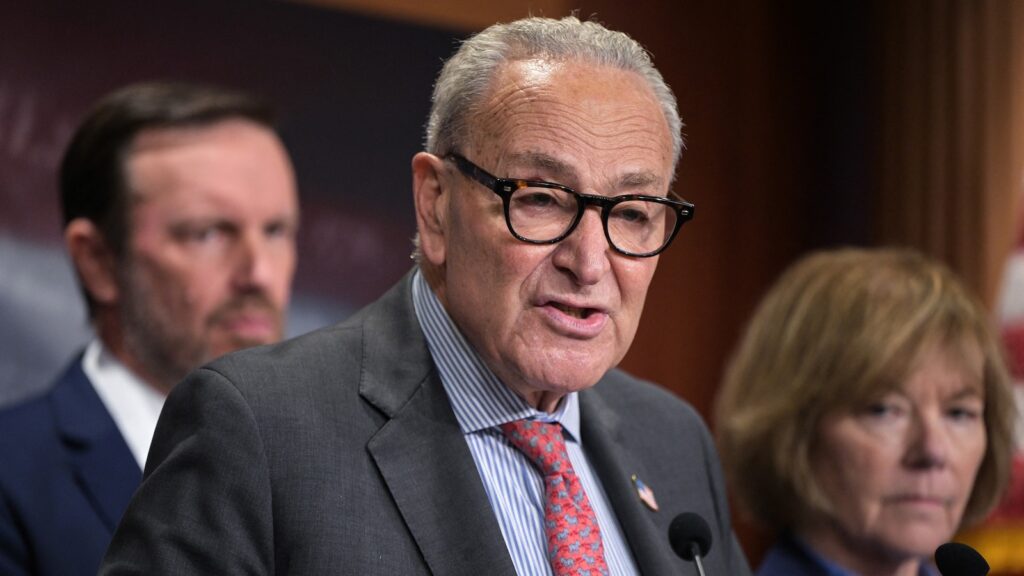The Senate on Friday failed to advance both the House-passed short-term government funding bill and the Democrat counter-offer, increasing the risk of government shutdown early next month.
The Senate action came just hours after the House sent them the short-term funding bill. The Senate voted to block that Republican short-term funding bill, failing by a vote of 44-48.
Republican Sens. Lisa Murkowski and Rand Paul cast votes against the legislation. Democrat Sen. John Fetterman was the only Democrat to vote for it.
As expected, senators also failed to advance the Democrat funding bill with extraneous health care provisions by a vote of 47-45.
This leaves the Congress no closer to a government funding solution with the Oct. 1 deadline fast approaching.
Senate Majority Leader John Thune is met by reporters as he walks to his office while Congress works on a government funding solution, at the Capitol in Washington, D.C., Sept. 18, 2025.
J. Scott Applewhite/AP
Ahead of the two votes Friday afternoon, party leaders from both sides of the aisle dug in on their positions, pointing fingers at the other side.
On Friday morning, Majority Leader John Thune urged passage of the House’s clean short-term funding solution to allow more time for work on full-year appropriations bills. The House-passed proposal funds the government for 52 days, through Nov. 21.
Democrats, he said, would bear the responsibility for a shut down if they block the just-passed House bill from proceeding.
“If they want to shut down the government, they have the power to do so, but if they think they are going to gain political points from shutting down the government over a clean nonpartisan CR, something they voted for 13 times under the Biden administration, I would strongly urge them to think again,” Thune said.
He accused Democrats of throwing an “endless temper tantrum” by refusing to keep the lights on with a stopgap funding bill.

Senate Minority Leader Chuck Schumer speaks alongside Senator Chris Murphy and Senator Tina Smith during a news conference on free speech legislation, at the US Capitol in Washington, D.C., on Sept. 18, 2025.
Oliver Contreras/AFP via Getty Images
But Minority Leader Chuck Schumer, moments later, made a pitch instead for the Democrat continuing resolution, which included a number of health care provisions Democrats want. Republicans, he said, haven’t been willing to negotiate with Democrats to secure their votes.
Ahead of the vote, Schumer said that “senators will have to choose to stand with Donald Trump and keep the same lousy status quo and cause the Trump health care shutdown, or stand with the American people, protect their health care and keep the government functioning.”
Thune, however, called this a “fundamentally unserious proposal designed to appease Democrat’s liberal base” and said it had “zero chance of making it through the Congress.”

Speaker of the House Mike Johnson (R-LA) speaks the the media after walking off the House floor at the US Capitol, on Sept. 19, 2025, in Washington, D.C.
Tasos Katopodis/Getty Images
Ahead of the Senate votes, Speaker Mike Johnson said that “the ball [was] in Chuck Schumer’s court” to avoid a government shutdown.
“I hope he does the right thing,” Johnson told reporters Friday following the House vote. “I hope he does not choose to shut the government down and inflict pain unnecessarily on the American people.”
What’s next?
The government shuts down on Oct. 1 if Congress doesn’t act.
The Senate is scheduled for a one-week recess next week, though it’s likely they’ll return midweek next week if there’s no clear path forward.

